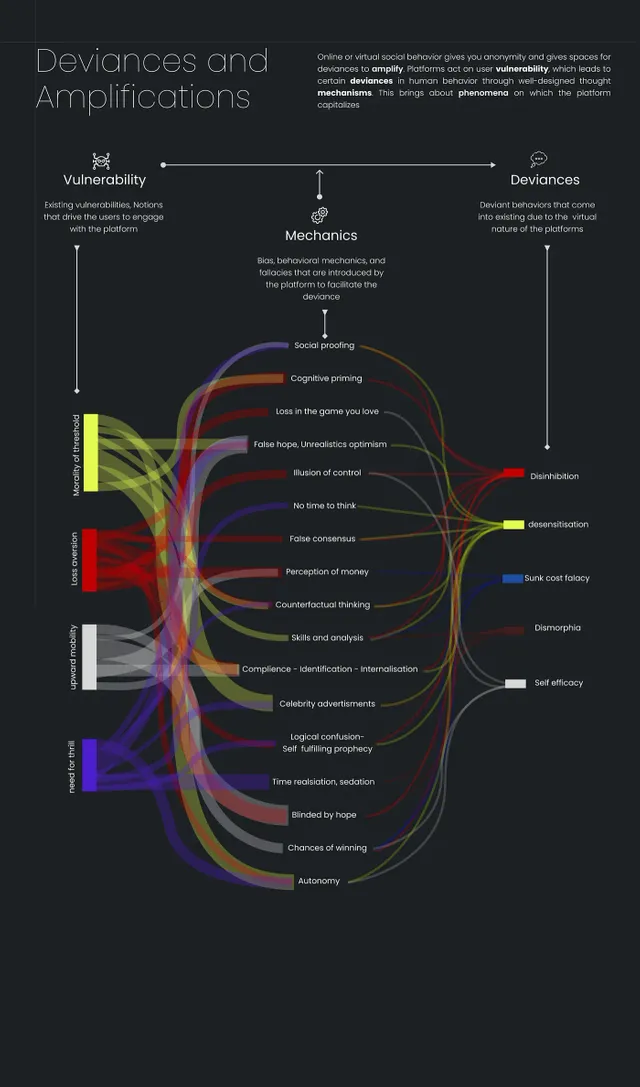The vector of your morality must not point away from egalitarian ideas.
-Harshit Sinha
THis blog post talks about a module that was taught to us by Harshit Sinha, in A module called Virtual social behavior in the National institute of design, Gandhinagar, India.
Anarchy Vs reformist? How do you bring about a change in the society we live in? Human societies are in a constant state of flux. How do we as designers operate in this fuzzy space of constant flux and how do we opt for a reformist lens to bring a change in society?
We currently operate in industry 4.0, an industry that is driven by big business and experience offerings. What is the most common change throughout this industry, from 1.0 to 4.0? Our way of living? The way we experience things? The list is endless. But as a student of design with a keen interest in behavior what has seen a major shift in how humans behave and how they establish interpersonal relationships? If viewed from a social psychology lens what role motivation, perception, influence, and interactions play at a societal level is something that has seen the maximum impact change.
UX design is a field that came into existence to solve problems and design experience and must take up the role of a reformist to bring about change through design. The field of UX can be viewed from a meta scale that looks at user experience design as a medium to alter social behavior. The design of applications which are a medium through which a company’s ideologies reach the users. As UX designers, we design these touchpoints. If viewed from this lens this seems like a huge responsibility. These mediums have not reached a stage where the ideologies of a company are not just limited to the screens, it is creeping into social and human behavior. At a behavior level, in a module at the National Institute of Design, Virtual social behavior guided by Prof Guruprasad and Harshit Sinha. A lens of social psychology was explored in the field of UX research.
A medium as a metaphor — Harshit Sinha
These platforms, a touch point of ideologies, act as mediums that influence our behaviors. The development of technology is at a stage where it can identify vulnerabilities that exist within humans. These vulnerabilities seed from a very natural tendency of humans which is upward mobility in any aspect. We seek upward mobility which develops vulnerabilities. With critical design and business innovation, few mechanisms have developed that target these vulnerabilities, which leads to deviance in social as well as human behavior.
Based on this schema, a research project was attempted, the platform was Dream 11, The intention was to understand online gambling and betting behaviors and how this fantasy sports culture is becoming a trend. An attempt was made to understand the positive and negative of these vulnerabilities and deviances from a design and business lens and UX strategies were developed to make the game more skill-based and counter a few of these deviances
This is the schema that is at play for dream 11, how the existing vulnerabilities when addressed through these well thought and designed mechanisms can lead to deviance.

Understanding social and human behavior in a virtual space is a very fuzzy notion. How behaviors amplify or are suppressed is an interesting space to audit while developing a platform and designing experience.
Virtual space offers you anonymity, conformity, instant gratification, dismorphed reality, and much more which further tweets our self-concepts with leads to attributions, self-efficacy, and others fallacies that define deviant behavior.
Understanding behavior and deviances are lenses that are very important for UX design to lead change through business. The intention of understanding the social behavior with the focus mentioned can create a few questions one can ask as a UX designer about the platform they are designing. Going beyond experience and seeking what this experience is causing to society is dark, but needs to be looked at with wide-open eyes, probably with the torch of social psychology or behavioral economics to lead change as a reformist.